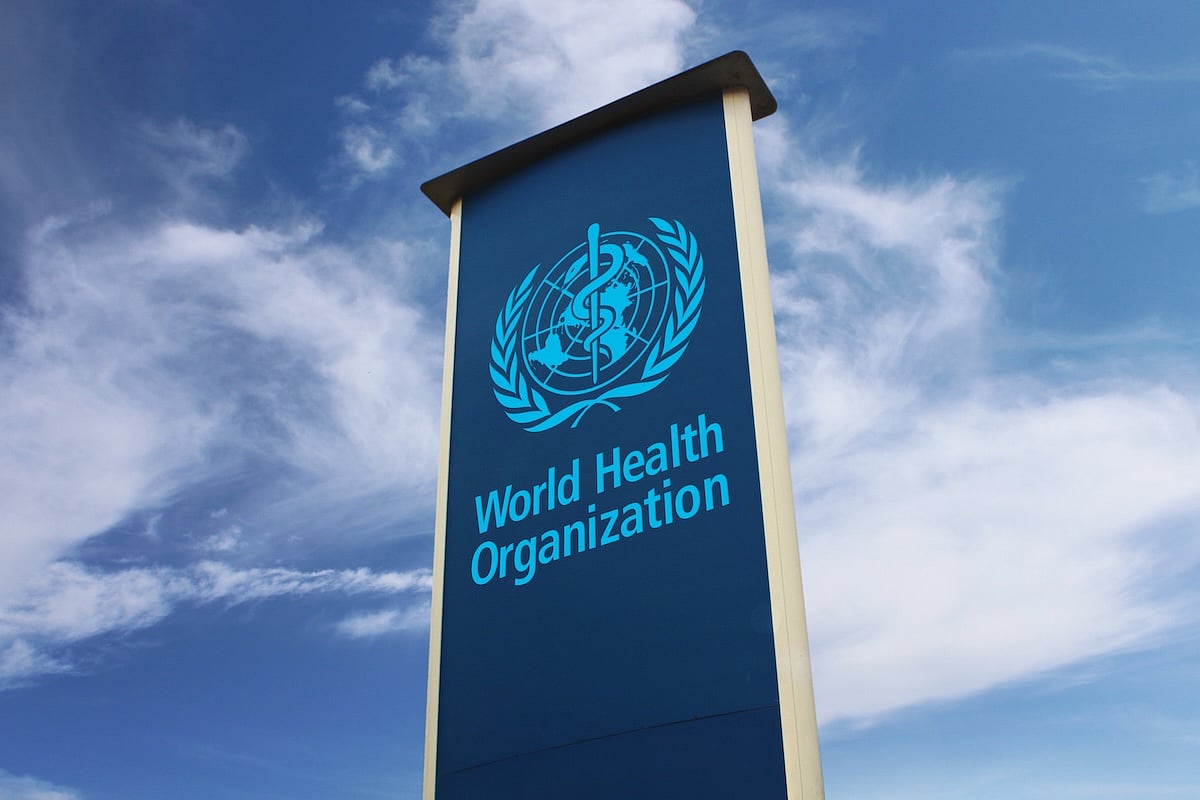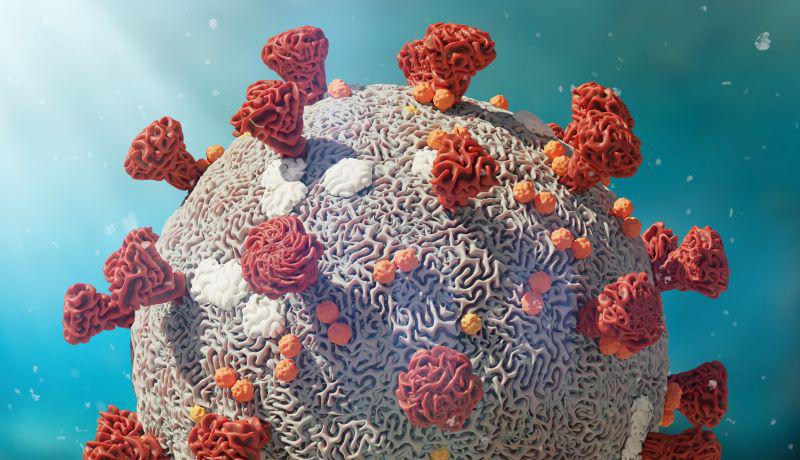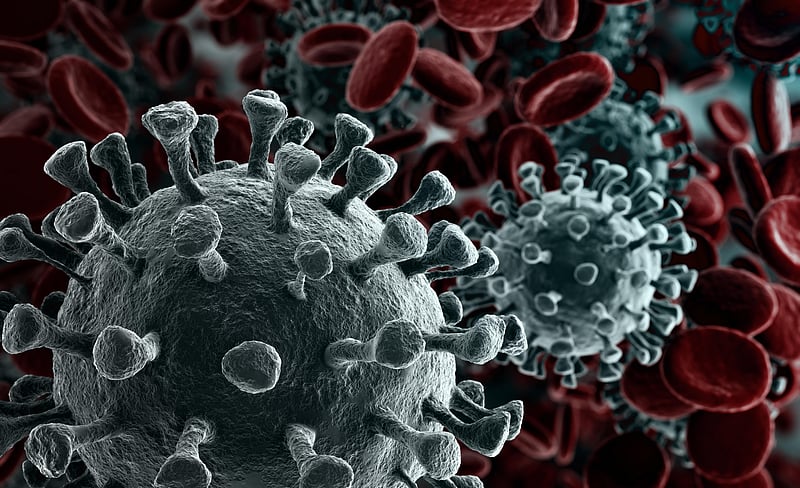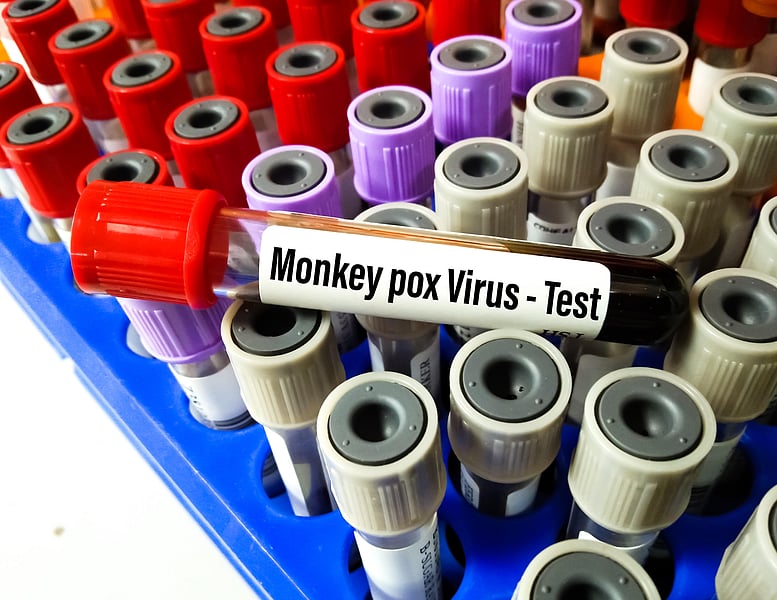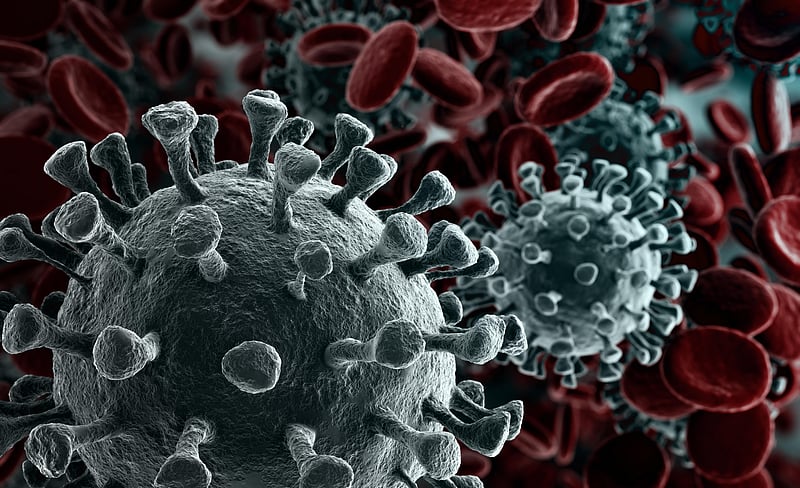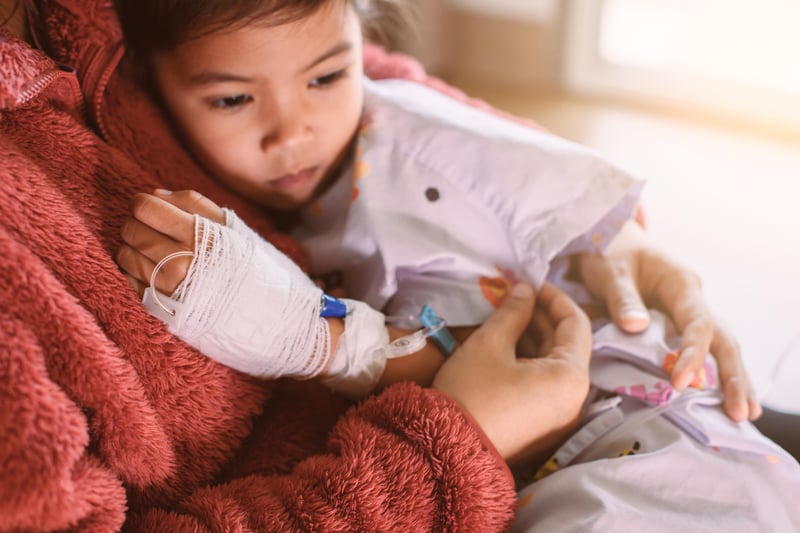Get Healthy!
Results for search "World Health Organization".
Health News Results - 36
The United States has officially pulled out of the World Health Organization (WHO), a year after President Donald Trump announced plans to leave the global health group.
The Trump administration said the decision was based on what it called WHO’s poor handling of
Whooping cough is making a major comeback in the United States, with sharp increases now seen in Texas, Florida, California, Oregon and many other places.
Health officials say the latest rise in pertussis cases is being driven by falling vaccination ...
- I. Edwards HealthDay Reporter
- |
- November 20, 2025
- |
- Full Page
When someone has whooping cough, the sound can be unmistakable: A deep, gasping “whoop” as they struggle to catch their breath between fits of coughing.
Now, this once-rare illness, also known as pertussis, is making a comeback across the United States.
Cases have now surpassed pre-pandemic levels, and while the disease can be exhausting for adults, experts warn it...
- I. Edwards HealthDay Reporter
- |
- October 4, 2025
- |
- Full Page
China has promised to give $500 million to the World Health Organization (WHO) over the next five years, positioning itself to become the group’s top donor.
The pledge comes as the United States plans to leave the international organization, The Washington Post reported.
Chinese Vice Premier Liu Guozhong a...
- HealthDay Reporter
- I. Edwards
- |
- May 22, 2025
- |
- Full Page
Staff at the U.S. Centers for Disease Control and Prevention (CDC) have been told to stop communication with the World Health Organization (WHO), in the wake of President Donald Trump's order withdrawing from the health agency.
The memo was sent late Sunday from the CDC's deputy director of global health, Dr. John Nkengasong. ...
- HealthDay Reporter
- India Edwards
- |
- January 28, 2025
- |
- Full Page
A new COVID variant with very few known cases but many mutations has been swiftly moved into the World Health Organization's "variant under monitoring" classification.
Four known cases of the variant, dubbed BA.2.86, have been so far identified worldwide, including one case in Michigan.
The U.S. Centers for Disease Control and Prevention said Thursday that it is tracking the new va...
- HealthDay Reporter
- Cara Murez
- |
- August 18, 2023
- |
- Full Page
In findings that are likely to fuel the debate over the safety of aspartame, one World Health Organization (WHO) agency announced Thursday that the artificial sweetener is a possible carcinogen while another stood firm in saying that aspartame is safe in recommended doses.
"Cancer is one of the leading causes of death globally. Every year, 1 in 6 people die from cancer. Science is continu...
- HealthDay Reporter
- Cara Murez
- |
- July 14, 2023
- |
- Full Page
The artificial sweetener aspartame is in the hot seat once more.
Two separate committees made up of health experts from around the world will soon offer advice on consuming aspartame, a popular sugar substitute that is added to sodas, cough drops, desserts and gum.
The World Health Organization's International Agency for Research on Cancer (IARC) is
Skip artificial sweeteners if you're trying to lose weight, warns the World Health Organization (WHO), noting the sugar substitutes aren't effective for shedding pounds and may also cause harm.
Long-term use of sugar substitutes may cause "potential undesirable effects," according to new WHO guidance. This can include an "increased risk of type 2 diabetes, cardiovascular diseases, an...
- HealthDay Reporter
- Cara Murez
- |
- May 17, 2023
- |
- Full Page
More than three years after the coronavirus began ravaging the planet, the World Health Organization (WHO) announced Friday that the pandemic is no longer a public emergency.
"It's with great hope that I declare COVID-19 over as a global health emergency,"WHO Director-General Tedros Adhanom Ghebreyesus said durin...
- HealthDay Reporter
- Cara Murez
- |
- May 5, 2023
- |
- Full Page
New advice from the World Health Organization (WHO) says healthy children and teens may not need additional COVID-19 shots, though they may need to catch up on other routine vaccines.
"The public health impact of vaccinating healthy children and adolescents is comparatively much lower than the established benefits of traditional essential vaccines for children -- such as the rotavirus, me...
- HealthDay Reporter
- Cara Murez
- |
- March 29, 2023
- |
- Full Page
The pandemic has reached a "transition point,"the World Health Organization (WHO) said Monday.
Still, that doesn't mean the public health emergency of international concern (PHEIC) designation declared by the WHO in January 2020 is over yet.
The organization's International Health Regulations Emergency Committee met last week to discuss COVID-19, saying in a
Almost 15 million people likely died as a result of the COVID-19 pandemic in 2020 and 2021, nearly three times more than previously reported, a new World Health Organization study estimates.
The researchers said the COVID-19 pandemic caused about 4.5 million more deaths than would have been expected in 2020, and 10.4 million more in 2021, according to the report published online Dec. 14 i...
- HealthDay Reporter
- Dennis Thompson
- |
- December 14, 2022
- |
- Full Page
In updated guidance issued Thursday, the World Health Organization now recommends against using the antibody drugs sotrovimab and casirivimab-imdevimab for patients with COVID-19.
This recommendation replaces previous conditional recommendation for these antibody drugs. The change in guidance was based on emerging evidence that the medications -- which work by binding to the SARS-CoV-2 sp...
- HealthDay Reporter
- Cara Murez
- |
- September 16, 2022
- |
- Full Page
Monkeypox, which has now spread to 75 countries and sickened at least 16,000 people, has been declared a global health emergency by the World Health Organization (WHO).
The declaration came after WHO Director General Dr. Tedros Adhanom Ghebreyesus overruled a panel of advisors that could not come...
- HealthDay Reporter
- Cara Murez
- |
- July 25, 2022
- |
- Full Page
People shouldn't take the drugs colchicine and fluvoxamine to treat mild to moderate COVID-19, the World Health Organization (WHO) is warning.
The antidepressant drug fluvoxamine (Luvox) and the gout drug colchicine are commonly ...
- HealthDay Reporter
- Dennis Thompson
- |
- July 15, 2022
- |
- Full Page
In an about-face from an original report on what might have caused the COVID-19 pandemic, experts enlisted by the World Health Organization said Thursday that they could not discount the "China lab leak" theory.
In contrast, the WHO's initial assessment in 20...
- HealthDay Reporter
- Robert Preidt
- |
- June 9, 2022
- |
- Full Page
In an estimate that far exceeds reported totals, an expert panel appointed by the World Health Organization (WHO) said Thursday that there were nearly 15 million more deaths worldwide during the first two years of the pandemic than would normally have been expected.
That compares with an official tally of 6.2 million COVID-19 deaths r...
- HealthDay Reporter
- Robert Preidt
- |
- May 5, 2022
- |
- Full Page
The World Health Organization (WHO) is investigating an unexplained increase in severe liver infection in children around the world including in the United States and the United Kingdom.
The severe acute hepatitis cases have led to hospitalizations and even some liver transplants, but not deaths, CBS News report...
- HealthDay Reporter
- Cara Murez
- |
- April 18, 2022
- |
- Full Page
Almost no one in the world is breathing good air, according to a new World Health Organization report, which issued a call for reducing the use of fossil fuels.
Air quality is the worst in WHO's Eastern Mediterranean and Southeast Asia regions, but 99% of the global population breathes air that exceeds ai...
- HealthDay Reporter
- Cara Murez
- |
- April 4, 2022
- |
- Full Page
Gum disease has been linked to an increased risk for preterm birth, and now new research suggests that chewing sugar-free gum with xylitol during pregnancy may lower this risk.
The study took place in Malawi, Africa, which has one of the world's highest rates of preterm delivery. Experts are quick t...
- HealthDay Reporter
- Denise Mann
- |
- February 3, 2022
- |
- Full Page
The latest shipment of 1.1 million COVID-19 vaccines to Rwanda this weekend signaled a noteworthy achievement: The COVAX program, a United Nations-backed program providing poorer countries with vaccines, has now shipped one billion of the doses to combat the coronavirus in 144 countries.
But still, that "is on...
- HealthDay Reporter
- Cara Murez
- |
- January 17, 2022
- |
- Full Page
An international trial found that a once-a-day antiretroviral medication for kids with HIV is not only cheap and easy to take, but also better at suppressing HIV than standard treatments.
"Our findings provide strong evidence for the global rollout of dolutegravir for children with HIV," said Dr. Diana Gibb, a professor of epidemiology at University College London and a principal investig...
- HealthDay Reporter
- Cara Murez
- |
- January 3, 2022
- |
- Full Page
A new program to boost the supply of cancer medicines for children in low- and middle-income countries has been announced by the World Health Organization (WHO) and St. Jude Children's Research Hospital.
The hospital is making a six-year, $200 million investment to launch the Global Platform for Access to Childhood C...
- HealthDay Reporter
- Robert Preidt
- |
- December 22, 2021
- |
- Full Page
With HIV a continuing threat to women's health, the World Health Organization (WHO) has approved the first long-acting device to protect women from sexually transmitted HIV.
The device is a vaginal ring made of silicone elastomer, a flexible rubber-like material that makes it easy to insert and comfortable to use. The ring releases the antiretroviral drug dapivirine into the vagina slowly...
- HealthDay Reporter
- Robert Preidt
- |
- December 1, 2021
- |
- Full Page
New treatment options are giving hope to patients with stomach cancer.
Also known as gastric cancer, the disease is the world's sixth most common cancer with 1.09 million new cases in 2020, according to the World Health Organization.
It's an abnormal growth of cells that can affect any part of the stomach, but typically forms in the main part.
"I tell patients who have been re...
- HealthDay Reporter
- |
- November 25, 2021
- |
- Full Page
A new rule to sharply cut methane emissions and other oil and gas industry air pollutants that harm health and contribute to climate change is in the works.
The new Clean Air Act rule proposed Tuesday by the U.S. Environmental Protection Agency (EPA) would cut 41 million tons of methane emissions between 2023 and 2035.
That's the equivalent of 920 million metric tons of carbon dioxi...
- HealthDay Reporter
- Robert Preidt
- |
- November 2, 2021
- |
- Full Page
Most adults who lose smell or taste due to COVID-19 infection regain those senses within months, but a quick recovery is more likely in those under 40, a new study finds.
It included 798 participants in an ongoing survey who reported a loss of either sense after testing positive for COVID.
- HealthDay Reporter
- |
- October 11, 2021
- |
- Full Page
The first vaccine to protect against malaria has been endorsed by the World Health Organization (WHO) and could prevent the deaths of tens of thousands of children a year.
Malaria kills about half a million people worldwide annually. Nearly all of those deaths occur in sub-Saharan Africa and include 260,000 children under the age of 5, The New York Times reported.
...
- HealthDay Reporter
- Robert Preidt
- |
- October 6, 2021
- |
- Full Page
The United States will buy 500 million more doses of the Pfizer coronavirus vaccine that it will donate to countries in need, President Biden announced at a virtual summit on the pandemic Wednesday.
The United States is doubling its purchase of the vaccine to 1 billion doses as Biden hopes 70% of the world's population can be vaccinated within a year, the Associated Press reporte...
- HealthDay Reporter
- Steven Reinberg
- |
- September 22, 2021
- |
- Full Page
In Africa, only 4% of people have been fully vaccinated against COVID-19. Leaders had once hoped to have 60% of people living on the continent vaccinated this year.
That now appears unlikely.
The World Health Organization (WHO) and its partners said they do hope to provide African countries with 30% of the vaccines the continent needs by February, the Associated Press repor...
- HealthDay Reporter
- Cara Murez
- |
- September 15, 2021
- |
- Full Page
An experimental Ebola vaccine appeared effective in children and adults in a clinical trial.
Two doses of Johnson & Johnson's Ebola vaccine appear safe, well tolerated and produce a strong immune response in people over the age of 1, according to two just-published papers.
...- HealthDay Reporter
- Steven Reinberg
- |
- September 14, 2021
- |
- Full Page
COVID-19 vaccine booster shots might not be needed for most people, according to a large international review.
The review -- conducted by a team that included scientists from the World Health Organization and the U.S. Food and Drug Administration -- concluded that current vaccines are effective enough against severe COVID-19, even from the Delta variant, and that booster shots are unnece...
- HealthDay Reporter
- Steven Reinberg
- |
- September 13, 2021
- |
- Full Page
Fewer COVID-19 vaccine doses than expected will be available through the global COVAX program, affecting many less-affluent nations waiting on these doses.
The United Nations forecast last week that it would have about 25% fewer vaccines to distribute through COVAX this year -- 1.4 billion compared to an earlier projection for 1.9 billion doses,
The highly transmissible Delta variant of COVID-19 has highlighted a fear shared by infectious disease experts worldwide: That increasingly dangerous mutations will continue to crop up until most people around the globe are vaccinated.
"There are going to be more variants and they may eventually be variants of concern or variants that pose problems for the vaccine," said Dr. Amesh Adalja...
- HealthDay Reporter
- Dennis Thompson
- |
- September 8, 2021
- |
- Full Page
A new coronavirus variant called Mu that may be able to evade existing antibodies, including those from vaccines, is under close watch by U.S. health officials.
The variant hasn't taken extensive hold in the United States at this point, but the U.S. National Institute of Allergy and Infectious Diseases is taking it "very seriously," according to its director, Dr. Anthony Fauci, CBS Ne...
- HealthDay Reporter
- Robert Preidt
- |
- September 3, 2021
- |
- Full Page
